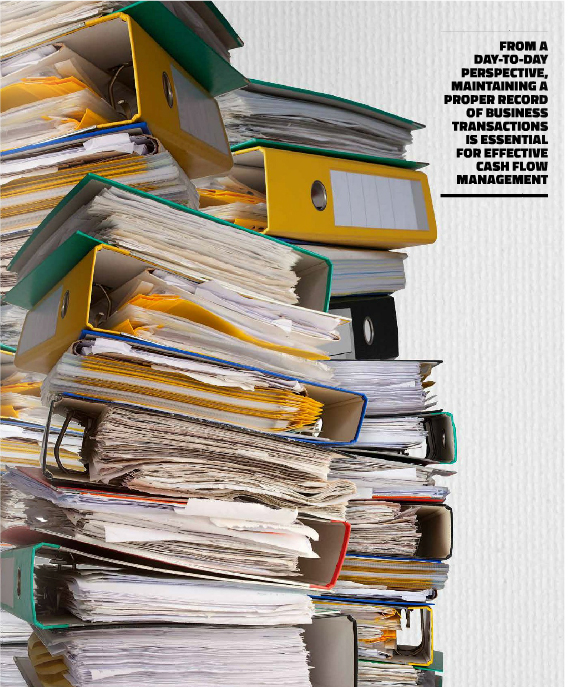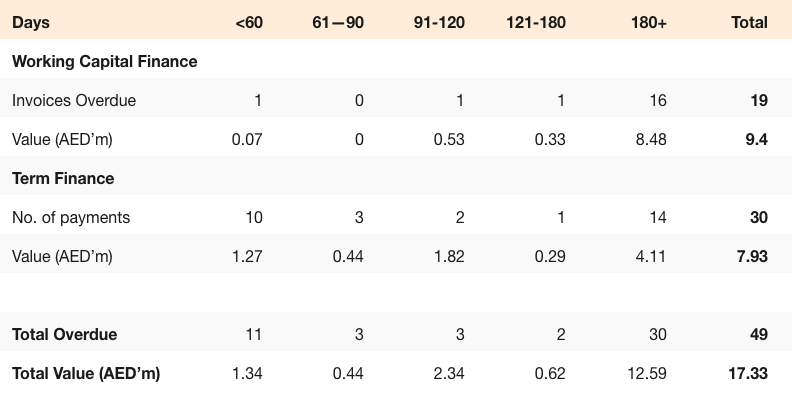Proper bookkeeping is important to sustaining and growing any business. Perhaps nowhere is this more evident than in the expanding small and medium sized enterprises (SME) sector, where businesses inability – and sometimes unwillingness – to maintain proper accounting records could lead to businesses failure. With an estimated 300,000 SMEs contributing more than 60% of the UAE’s GDP and providing the bulk of employment opportunities in the country, there is much at stake. Given the compelling reasons for businesses to maintain proper records, and the availability of viable options and tools, there is no reason why SMEs shouldn’t be adopting a proactive approach to help boost their chances of survival and prosper.
The importance of maintaining proper accounting records and bookkeeping by SMEs cannot be overstated. Yet many entrepreneurs and business owners do not take keeping a record of accounts seriously, placing it low on their list of priorities. Often, small businesses will adopt what is known as a ‘shoebox’ approach to record keeping, recording sales and purchase transactions on a piece of paper and then throwing it into a shoebox. But halfhearted efforts such as this are of no use when it comes to business decision making. Still others perceive bookkeeping as an inconvenience, a colossal waste of time on a mundane administrative task, not realising the positive impact it could have on their business success. Remember the saying “if you cant’ measure it, you can’t manage it”. But what is it that makes bookkeeping so important for SMEs?
For starters, bookkeeping helps businesses plan ahead. It ‘forces’ them to take a good look at their budget, allowing them to plan for purchases and other miscellaneous costs which makes it easier to forecast business needs ahead of time. It also assists with meeting deadlines for payments such as rent, salaries, bills and loans.
From a day to day perspective, maintaining a proper record of business transactions is essential for effective cash flow management, without which no business can stand the test of time. It is also an essential tool to help gauge performance, letting a small business know how it is fairing and whether it is growing, declining or stagnant. By providing an accurate picture of a business’s operation, bookkeeping also supports the assessment of profitability and productivity. This means an SME can adapt its business strategy and make the necessary adjustments to turn things around or focus on what’s working and capitalise on opportunities.
Efficient bookkeeping practices also provide an early warning system, alerting businesses to problems such as increased costs for products or equipment or customers who aren’t paying on time, before they have a chance to negatively impact the business. Effective record management also provides protection against threats such as internal theft or dishonest employees by revealing fraud, waste and record keeping errors. Additionally, they allow businesses to track money transactions and if there are any discrepancies that need to be rectified. It should come as no surprise then that the lack of proper record management contributes to the failure of many SMEs.
In terms of resourcing, good record keeping facilitates sound, informed decisions when it comes to increasing headcount. It lets a business know if it can absorb the extra expenses incurred by bringing in new employees. By providing a background picture, bookkeeping also helps SMEs spot trends and patterns, allowing them to forecast their future and set goals and projections.
Beyond providing businesses with accurate information on which to base decisions, proper bookkeeping is a door opener. It enables other businesses, organizations and investors to assess the performance and potential of an SME. Through evaluating their business activity, they are able to decide on whether to engage with the business through trade, financing or other commercial transactions.
Bookkeeping is vital to the ability of an SME to seek funds for working capital and expansion, allowing it to capitalise on opportunities that would otherwise be lost. A business that is able to offer an audited financial statement for use by management, banks and prospective creditors, can make a stronger case for an overdraft, a loan or flexible financing and credit terms.
Much like any entity that provides finance for SME, a peer-to-peer finance platform like Beehive will ask for a business’s financial records. It will look at a cross-range of variables that determine the credit risk of a business, relying heavily on documentation that is created through transparent, reliable bookkeeping. An SME’s ability to produce such records means that the business is serious and committed to success. It also indicates that the business is well-managed, organised and has nothing to hide.
To help SME’s in their application process, Beehive has entered into a cooperation agreement with UHY Saxena, a member of UHY International’s network of independent accounting and consulting firms with offices in over 296 major business centres across more than 89 countries. Through this cooperation, UHY Saxena offers SME’s that are looking for finance on Beehive’s peer-to-peer finance platform a cost effective option to obtain the required audited financial reporting at significantly reduced rates. For SME’s who may not have maintained financial records in the past, this option allows them to not only gain a better understanding of their financial strength, it also opens up a new avenue to obtain financing to fuel their growth.
Source: Business Insight




